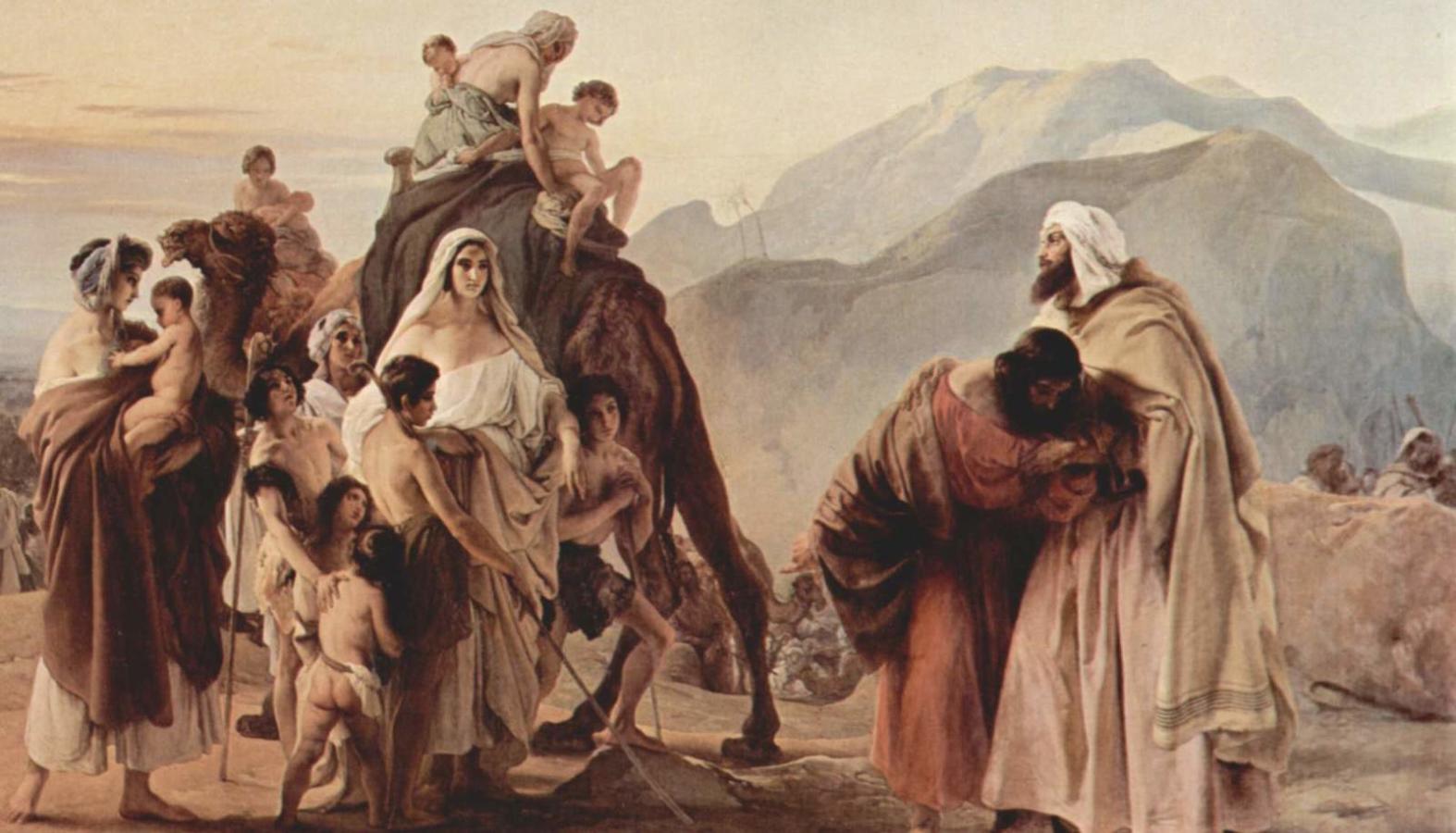Commentary on Parashat Vayishlach, Genesis 32:4-36:43
After years of contention, Jacob and Esau are reconciled. Their relationship is somewhat awkward, and they will never be the closest of brothers. Still, for the first time each can accept the other as he is; each can see the other’s wealth without coveting it. What has changed? How can two people who tricked and threatened to kill each other embrace?
During their boyhood, Esau and Jacob were in fierce competition. Each was beloved by one parent, but felt the other was the favored child. Each wanted what the other had. Esau, skilled in providing himself with game, wanted Jacob’s pottage. Jacob, reportedly a simple man, wanted the greatness promised by birthright and blessing. Nothing was worthwhile unless it belonged to the other. Esau only values his birthright and blessing after Jacob has acquired them. They are children competing for their parents’ attention and gifts. Each is too needy to acknowledge the other’s needs.
Reunited
When they are reunited, Esau and Jacob have overcome their neediness. Each has a family, retainers and possessions acquired through his own efforts. Jacob, who has always gained at Esau’s expense, offers him a gift. Esau refuses, saying, “I have enough, my brother; let what have remain yours” (Genesis 33:9). Jacob insists, claiming, “God has favored me and I have plenty” (33:11). Each of the brothers is now able to recognize how much he has; secure in themselves, they have no need to envy each other.
Each of us is constantly striving to achieve some goal. Absorbed in our efforts, we sometimes lose sight of how much we already have. We envy the achievements of others rather than appreciate our own. Only when we learn to value what we are can we live at ease with others. Esau and Jacob can be reconciled when they realize in the words of Pirkei Avot (Ethics of the Forebears), “Who is rich? One who is happy with his portion.”

Help us keep Jewish knowledge accessible to millions of people around the world.
Your donation to My Jewish Learning fuels endless journeys of Jewish discovery. With your help, My Jewish Learning can continue to provide nonstop opportunities for learning, connection and growth.
Provided by CLAL: The National Jewish Center for Learning and Leadership, a multi-denominational think tank and resource center.



